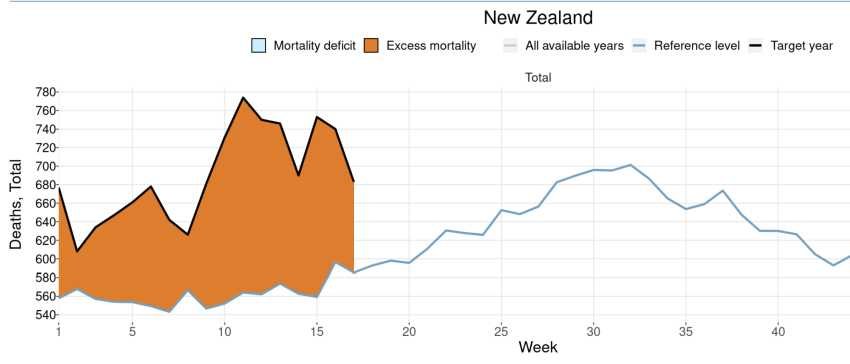All constitutional arrangements have both written and unwritten provisions that underpin their operation. These reflect the duty of care owed to the population, to promote progress, protect them from harm, and refrain from interfering with or removing their basic human rights.
Unfortunately, we have come to realise that governments make promises they can’t keep and fail in many of their undertakings. We also know that many of these promises are made in the absence of good faith—they contain assurances that are most probably unrealisable or even patently false.
In many ways, we are all playing a political game. The electorate knows what is going on, but at every election we hope that newly elected voices will finally act in good faith, only to have our hopes dashed yet again.
It is quite a different matter when a government deliberately enforces policies that result in direct harm to sections of the population without any provision to escape their effect. It is at this point that the government may be said to be acting outside of constitutional protections.
The Casualties of Our Pandemic Response
In the very early months of the pandemic and the mRNA vaccination programme, the government might argue defensively that they were, to a certain extent, unsure of the potential effectiveness of Covid inoculation and hopeful about the ultimate long term outcome. This is no longer the case.
It is now clear from the government’s own official data that there is no statistical benefit of reduced Covid infection, hospitalisation, and death rates among the vaccinated population, but this has been hidden from the public.
More worryingly, it is also clear that Covid vaccination is associated with an unprecedented rate of adverse effects including serious illness and death, more than 40 and possibly as high as 80 times that of traditional vaccines.
We have previously discussed a pattern of excess all-cause mortality in 2021 closely related to Covid vaccination. We estimated that there were over 2000 excess deaths during the first eight months of the vaccine rollout.
From the start, there has been a worry that the long-term effects of Covid mRNA vaccination are unknown, due to the limitations, brevity, and inconsistent findings of the Pfizer vaccine trials.
2022 New Zealand All-Cause Mortality Figures Are Now Available
These show that the pattern of excess deaths is continuing. Moreover, the magnitude of the effect is similar to 2021 and is greatly in excess of the known official mortality from Covid itself.
Using the Human Mortality Database (a University of California / Max Planck collaboration), we have compared the all-cause, all-age New Zealand mortality for the first 17 weeks of 2022 to the long term average for 2010-19.

These figures show that the excess deaths for the first 4 months of 2022 exceeded 2,200, whereas the total confirmed deaths which list Covid as the underlying cause of death, as recently announced by the government, is less than 450 for the same period. This is in line with a 2020 article in the British Medical Journal. It suggests that less than 1/3 of excess deaths are due to Covid. So what are they due to?
The important point is that there are many reasons to suppose that mRNA vaccination is contributing to the elevated death rate. Learned journals are publishing new articles raising significant questions at an unprecedented rate. For example, an Israeli study has shown that high levels of cardiac emergency call outs are related to prior Covid vaccination, but not to prior Covid infection (for more information see this summary).
Even an editorial in the prestigious and influential New England Journal of Medicine has warned of the potential harmful impacts of mRNA Covid vaccination on the immune system such as antibody-dependent enhancement (ADE). Excess all-cause deaths could be related to vaccine-induced immune deficiency. The New Zealand public remains in complete ignorance of this and other scientific warnings by virtue of the influence the government wields over the New Zealand mainstream media who have chosen to report on the government’s Covid response uncritically.
The Unwritten Constitution of New Zealand Includes the Bill of Rights
In New Zealand, in addition to the principles of Common Law originally derived from our association with the UK, we have a Bill of Rights. Its provisions include:
- Right not to be deprived of life or subjected to cruel treatment
- Right not to be subjected to medical or scientific experimentation
- Right to refuse to undergo medical treatment
- Freedom of thought, conscience, religion, and belief
- Freedom of peaceful assembly, association, and movement
- Right to justice, liberty, and freedom from discrimination
Unfortunately, the New Zealand Bill of Rights contains poorly worded limitations which were never meant to override its provisions but which have been misused by the government and misinterpreted by the courts. Whilst Section 5 entitled Justified limitations provides assurance saying:
“The rights and freedoms contained in this Bill of Rights may be subject only to such reasonable limits prescribed by law as can be demonstrably justified in a free and democratic society.”
Section 4 Other Enactments Not Affected says:
“No court shall…decline to apply any provision of a [subsequent] enactment [of the Government]—by reason only that the provision is inconsistent with any provision of this Bill of Rights.”
In other words, the legislation wording is insufficiently accurate to the extent that the government believes it can simply bypass the provisions of the Bill of Rights by passing new legislation, as it has done during the pandemic. This is self-evidently a distortion of the intent of the Bill of Rights.
The courts feel they must defer to the government. Moreover, the process of judicial review available in New Zealand to challenge the application of government policy in the courts does not allow for cross examination of witnesses. As a result, courts remain essentially tied to government advice.
The Government is Mandating Risk in Defiance of the Bill of Rights.
Despite the growing evidence of harm, the government has continued to endorse Covid vaccination mandates in one form or another upon at least 20% of the population. It has continued to fund saturation advertising assuring the public of the safety and efficacy of the Pfizer vaccine, contrary to fact. It has set up funding mechanisms to reward mainstream media publications which endorse mRNA vaccination. Despite evidence of increased cardiac risk, including long term risk, it has failed to warn the public of risks, quite the reverse.
In doing so, it has stepped beyond the constitutional protections of the New Zealand Bill of Rights. It is forcing the public to take on added medical risk including the risk of death. At the same time it is concealing the risks from the public. It is also suppressing and criminalising attempts to inform the public and the government of risks. Including the deregistration of doctors wishing to offer the public meaningful informed consent and the deletion of social media posts reporting vaccine-induced harm. This has engendered a constitutional crisis unprecedented in New Zealand’s history.
This has occurred partly as a result of a close alliance between the government and medical professionals who are ideologically committed to the safety and efficacy of any and every vaccination irrespective of new evidence. The government has also committed itself to an unquestioning level of trust in Pfizer, a company with a history of proven malpractice.
Medical professionals are not well qualified to govern nations, nor are pharmaceutical companies. The medical protections and rights of medical choice written into the Bill of Rights are there for very good historical reasons.
A level of fear has been promoted and created through manipulation and censorship of information. This has become associated with an irrational condemnation of those exercising their constitutional rights to refuse medical interventions, which are guaranteed by the NZ Bill of Rights.
Constitutional Reform—The Way Ahead
The distortion and concealment of information is so great that it may be said to be not only criminal but also in direct violation of the unwritten Common Law constitution of New Zealand. As a result, during the pandemic, an asymmetry has arisen between the limits of government power and the rights of the population. The government is determined to extend its power beyond previously recognised boundaries and thereby infringe on the prior rights of the people.
New Zealand is a relatively young and immature democracy with few historical moments of crisis. In 2003 Helen Clark abolished the right of appeal to the UK Privy Council and vested its functions with the New Zealand Supreme Court. In New Zealand, the courts do not act contrary to legislation, even if the provisions of Common Law are violated. It is Parliament that is supreme, its enactments not being susceptible to annulment by any court. Thus under the present vaguely defined constitutional provisions, the resolution of a constitutional crisis is a process poorly understood.
Resolution of crises, such as the pandemic now presents, will define New Zealand going into the future. Will we take truth as paramount, or will we consider truth to be a maleable tool of government? Historically we have despised those nations who distort the information available to their populations. We have participated in conflicts where we thought that truth and the protection of populations from violence was at stake.
The management of the pandemic has merged suspect modern medical orthodoxy, commercial medical imperatives, and the power of parliament to the extent that human rights, the rules of evidence, and personal freedoms have been bent to suit the aspirations of politicians and foreign institutions. The fact that no party has raised its voice in significant opposition is indicative of the extent of the constitutional crisis.
This government has eighteen months to run, we can only imagine the havoc that it is capable of creating during that period. New Zealand urgently needs a constitutional reform party to address the urgent issues that have arisen.
In the meantime, the provisions of the Bill of Rights should be reinstated without limitations. This is not a matter of new legislation, it is a matter of scientific fact that the provisions of the Bill of Rights have been bypassed illegally and the courts should recognise this and act accordingly.
This is a matter that cannot be bypassed, it must be faced and resolved.






